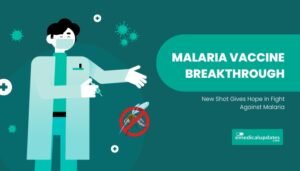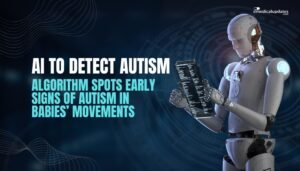Malaria Vaccine Breakthrough: New Shot Gives Hope in Fight Against Malaria
Introduction Malaria remains a leading cause of illness and death in many regions. The disease stems from the Plasmodium parasite, which spreads through the bites of infected Anopheles mosquitoes. Each year, millions contract malaria, and hundreds of thousands die. Children...
Read MoreCRISPR for HIV: Gene Editing Being Explored to Eradicate HIV Infection
Introduction Despite decades of research, HIV (Human Immunodeficiency Virus) continues to pose a global health challenge. While current antiretroviral therapy (ART) allows patients to manage HIV as a chronic condition, it doesn’t eradicate the virus hidden in latent reservoirs. A...
Read MoreAI to Detect Autism: Algorithm Spots Early Signs of Autism in Babies’ Movements
Introduction Autism is typically diagnosed around toddlerhood, although subtle signs may arise in infancy. Early identification can be critical for timely interventions, often improving language, social, and cognitive skills. Now, researchers have developed an AI-based algorithm that analyzes infant movements—like...
Read MoreGut-Brain Axis: New Research on How Gut Bacteria Might Influence Anxiety
Introduction The idea that our gut bacteria—the trillions of microbes living in our intestines—can influence mental health might sound surprising. Yet recent research increasingly points to a complex gut-brain axis, in which signals from the gastrointestinal tract can affect mood,...
Read MoreNew SIDS Research: Clues to Why Some Babies Don’t Wake Up
Introduction Sudden Infant Death Syndrome (SIDS) remains a devastating and poorly understood event in which seemingly healthy infants pass away during sleep without a clear cause. For decades, researchers have probed genetic, environmental, and physiological factors that might underlie SIDS,...
Read MoreStroke Recovery Breakthrough: Electrical Stimulation Helping Arms Move Again
Introduction Stroke often leaves survivors with partial or complete paralysis in the arms, hands, or legs, impacting their independence and quality of life. While physical therapy and rehabilitation can stimulate recovery, many struggle to regain full use of affected limbs. ...
Read MoreLongevity Genes: Scientists Discover Genes That Could Extend Lifespan
Introduction Few quests in biology are as enduring as the search to unlock the secrets of longer, healthier life. While lifestyle, environment, and chance all influence longevity, emerging evidence points to the profound role of longevity genes. Researchers studying centenarians...
Read MoreBlood Substitutes: Progress in Making Artificial Blood for Transfusions
Introduction Blood transfusions save lives daily, whether in trauma centers, operating rooms, or for chronic anemia. Yet, reliance on donated human blood comes with limitations—short supply, risk of contamination, and the logistical challenges of matching blood types. In response, researchers...
Read MoreMalaria in the U.S.: Genetically Modified Mosquitoes to Curb Disease Spread
Introduction For decades, malaria was largely eliminated from the United States, thanks to robust public health measures and improved living standards. However, sporadic cases—often travel-related—still occur. Recent local transmissions in states like Florida and Texas have reignited worries about the...
Read MoreSmell and Taste Loss Cure: New Therapy Helps Long COVID Patients Recover Senses
Introduction Long COVID—the prolonged aftereffects of a COVID-19 infection—often manifests in persistent symptoms that can last for months or even years. Among the most reported issues is anosmia (loss of smell) or ageusia (loss of taste). While some patients recover...
Read More









